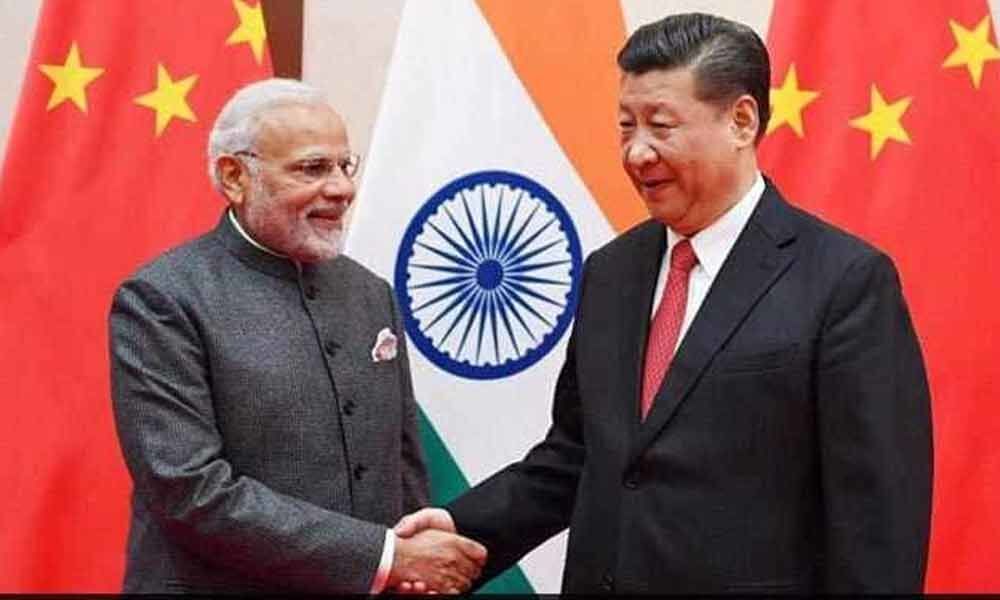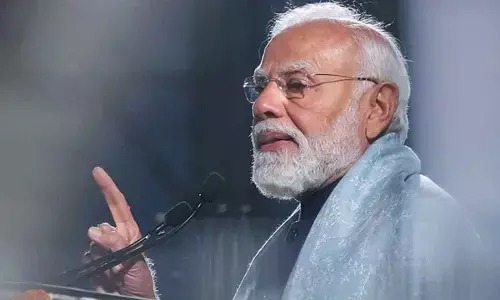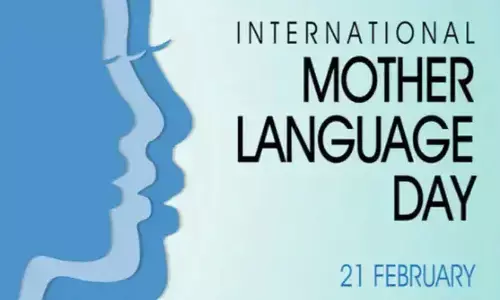We should worry about China, not Pakistan

The other day when Pakistan's Prime Minister, Imran Khan, suggested that a second term for Narendra Modi might lead to peace in the sub-continent, reactions to the same on this side of the border were predictably political
The other day when Pakistan's Prime Minister, Imran Khan, suggested that a second term for Narendra Modi might lead to peace in the sub-continent, reactions to the same on this side of the border were predictably political.
The Opposition quickly lunged at Modi to question his argument that it (Opposition) was speaking Pakistan's language. It went ahead to suggest that a vote for Modi was a vote for Pakistan.
There could not have been a more foolish interpretation of Imran Khan's dilemma. The Pakistan Prime Minister is not looking at India and its elections right now. He has far bigger challenges back home and is struggling to put things together in handling the crises that are getting thrown up at him from all corners.
Pakistan's economy is doddering. Its politics is in a mess. Its problems with the international community have only worsened. The US, France and UK are tightening the noose around it for harbouring terrorists in the country with the blessings of China.
Jaish- e- Mohammad's (JeM) suicide attack on Pulwama which claimed 40 CRPF jawans' lives and the subsequent revision of Indian doctrine which led to Balakot bombing only has landed the country in far deeper waters.
It's facing an uphill task at the Financial Action Task Force and is all set to be blacklisted which would doom the country further and faster.
Till a few days ago Imran Khan foolishly waded into the Indian elections claiming that only a change in government in India would bring peace to the region.
He, moreover, supplemented the Opposition's argument in India that Balakot never happened and that Pulwama itself was a staged attack for electoral gains.
Of course, the same did not any ice with the international community and was scoffed at in fact. Modi drew a similarity between Pakistan's argument and that of his own Opposition's to take his campaign in the 2019 general elections a notch up.
All this has only sent a wrong signal to the international community which began viewing Imran Khan as a prime provocateur.
Pakistani Prime Minister Imran Khan's "peace missive" suggesting PM Narendra Modi as the best bet is an outreach to the Western audience and big powers amid the precarious state of the country's economy.
It is not aimed at India or Indian audience. The country is seeking an IMF bailout and struggling to prevent getting blacklisted at the FATF due to the diligent work done by the Indian side.
Financial support from traditional partners in Gulf has not been adequate to tide over economic crisis and balance of payments issue.
Khan is making desperate attempts at image makeover in order to gain Western support to boost the economy even as China remains a close political and economic ally. This has been widely reported in the Pakistani media too.
Amid these crises came the International Monetary Fund's (IMF) downward revision of its economy on Tuesday. Its growth projections for Pakistan were at 2.8 per cent for 2018-19 and 2.9 per cent for 2019-20.
It cited "ongoing macroeconomic adjustment challenges" for its revised projections. "In Pakistan, in the absence of further adjustment policies, growth is projected to remain subdued at about 2.5 percent, with continued external and fiscal imbalances weighing on confidence."
Pakistan's rising fuel import bill following a devaluation of the Pakistani rupee and a downgrading in the sovereign rating by rating agencies have only added further to its economic woes.
FATF Grey Listing has prevented fresh flow of foreign funds as well as investments. The imminent blacklisting would stop all fund flow.
The country's foreign exchange reserves stood at more than $8 billion in February 2019 — just enough to service around two months of imports — as against over $12 billion just a year ago.
The Pakistani rupee has also depreciated nearly 40 per cent against the dollar in the last two years, estimates and reports suggest.
The IMF said the expected budget deficit of the country is likely to be 7.2 percent, which is feared to increase next year. It said inflation in Pakistan would remain 7.6 percent, despite a projected 6 percent.
"It has been almost eight months since PTI came to power, and during this period the country's economy has started crumbling, with inflation now at 9.41 per cent and the rupee at a historic low against the US dollar.
From petroleum products to food items, and from utility bills for electricity and gas to medicine, everything is subject to price increases because of the growing inflation rate, while the government is unable to attract any international investment and has failed miserably in creating business opportunities within the country," Asia Times article disclosed recently.
We need not be so obsessed with Pakistani talk and claims. They have enough problems on hand and enough headache to deal with. Our political parties and media need not suffer from this compulsive disorder of viewing everything from the Pakistan-prism. Imran Khan's remarks were aimed at the West.
It was in fact a course correction for him as he earlier had stated that a change in government in India would be better for Pakistan. India should be more worried about China and not about Pakistan.








